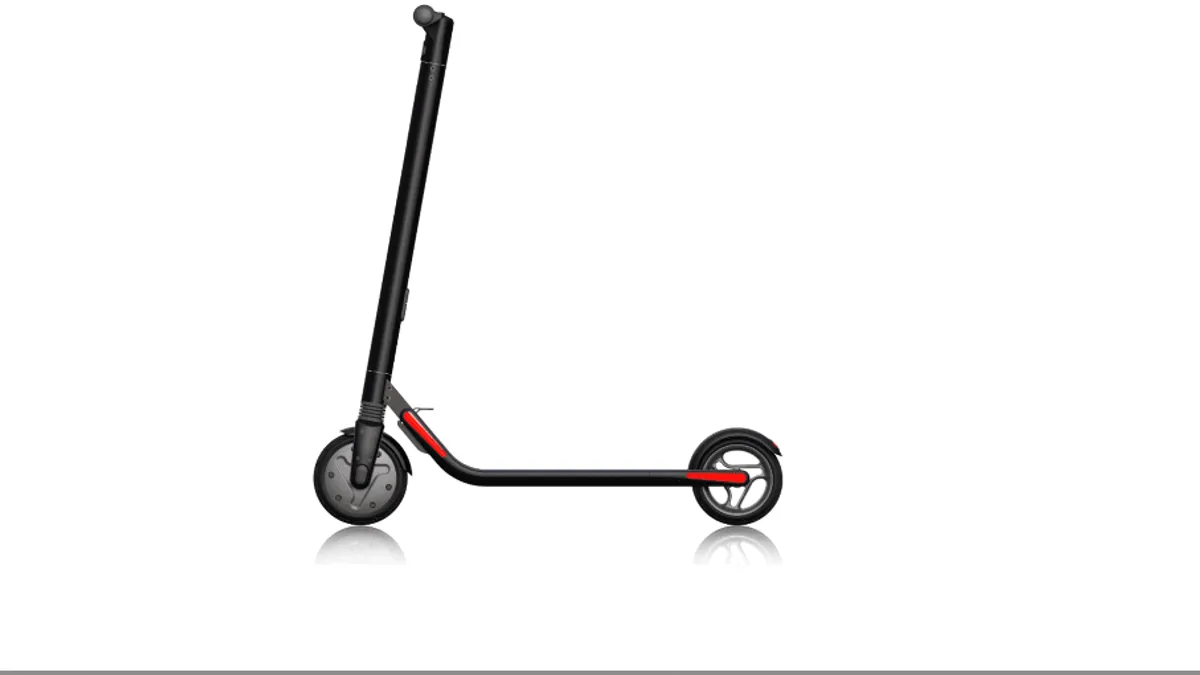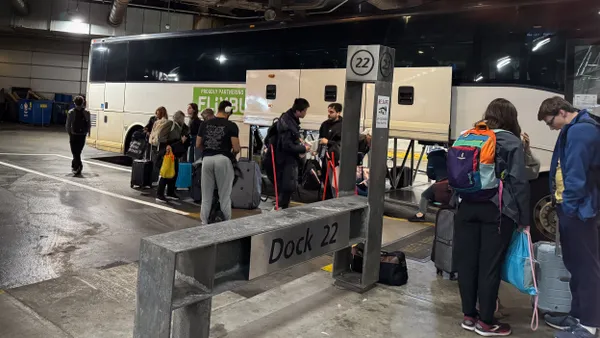UPDATE: July 10, 2018: Milwaukee, WI has taken legal action against Bird, according to the Milwaukee Journal-Sentinel.
The city alleged in a lawsuit that Bird failed to cease its operations in Milwaukee after City Attorney Adam Stephens sent a letter saying the use of scooters is illegal. The Journal-Sentinel reports a hearing is set for Friday, July 13, with the city likely to seek a temporary injunction to remove the scooters immediately.
But Bird, which dropped off 100 of the scooters in the city, said they have not done anything wrong.
"We respectfully disagree with the city’s contention that operation of any electric scooter in the state of Wisconsin is unlawful," a Bird spokesman told Smart Cities Dive in an email. "We look forward to working with the city to create and enforce common sense rules encouraging the safe use of our sustainable transportation option that the people of Milwaukee have begun to adopt enthusiastically."
Dive Brief:
- After Bird launched a fleet of its dockless scooters in Milwaukee, WI on Wednesday, the city said they cannot be legally operated on city streets and must be removed.
- “Bird’s Motorized Scooters may NOT be lawfully operated on any public street or sidewalk in the City of Milwaukee,” deputy city attorney Adam Stevens wrote in a letter to the company, according to the Milwaukee Journal-Sentinel. Riding the scooters, Stevens said, would be grounds for a $98.80 citation, and even more if the rider is intoxicated.
- Bird debuted a fleet of 100 dockless scooters in the city’s Third Ward neighborhood on Wednesday.
Dive Insight:
The controversy is nothing new for Bird, and neither is the swiftness with which Milwaukee reacted. Bird and other dockless vehicle companies have faced backlash in cities ranging from Miami to San Francisco — both Nashville, TN and Denver, CO issued cease and desist orders against Bird a day after the company launched in their cities (Denver issued a similar order against Lime). The major concern is the clutter problem — dockless vehicles can be left on sidewalks and alleyways, creating an aesthetic and safety problem. Cities can also lose out on potential revenue from unlicensed and unregulated companies.
Milwaukee officials grew concerned after seeing the scooters left on sidewalks and outside public buildings, prompting the rebuke. A Bird spokesman told the Journal-Sentinel the company had “submitted the necessary paperwork to operate as a business in Milwaukee” and that it works “closely with all of the cities in which we operate and looking forward to doing so in Milwaukee.”
The dockless craze does not appear to be going anywhere, and cities are scrambling to craft regulations to keep people safe. Atlanta could serve as a possible model — the city worked with European company Muving to organize a smooth rollout, even while the city council worked on new regulations for the vehicles.
VanderZanden had previously asked other scooter and bike-share companies on a “Save our Sidewalks” pledge with voluntary guidelines that would serve as an olive branch to cities, but it never gained traction and instead the companies find themselves once again facing off with authorities.











